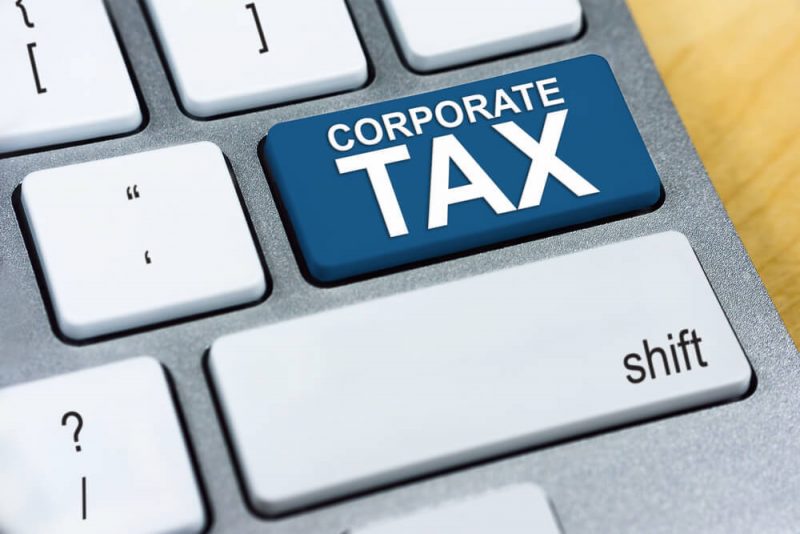Having a tax strategy is essential because it governs everything you do and provides a framework that allows you to meet your tax obligations without overpaying, There are still some year-end strategies that you can use to take advantage of tax cuts Tax incentives ", where the latter, also called tax write-offs, are considered tax incentives, When you reduce your taxable income by withholding taxes, it reduces the taxes you are owed.
What are the most prominent strategies for benefiting from tax cuts? That's what we'll recognize in our article for today.

What are the tax cuts?
Tax cuts or the so-called tax deduction are expenses that can be raised from your income to reduce the amount you pay as taxes, as tax cuts are a good thing because they reduce your taxable income, which also reduces your tax bill in the process.
The Tax Code allows you to deduct several different personal expenses from your taxable income each year, this can actually pay off during tax season because the reduction in taxable income reduces the amount of income subject to federal income tax, however, not all expenses incurred by tax savings will be saved; Because the Internal Revenue Act is very specific regarding the types of expenses you can deduct and taxpayers who may claim them.
Tax deductions can include work expenses such as office rental, equipment, commercial insurance and work travel, you can usually deduct most work expenses in whole or in part, knowing that your IRS will have details of the specific expenses and the circumstances in which you can deduct them.
Importance of tax cuts for small businesses
Tax cuts, also called tax write-offs, are tax incentives, and when you reduce your taxable income by writing off taxes, it reduces the taxes you are owed.
Learning about what expenses can be deducted from taxes and how to properly file tax write-offs provides the best way to get a tax break.
Last minute tax cuts for small businesses
Small businesses can write off a number of expenses and take advantage of tax cuts to help reduce the amount owed on income tax. The most important tax cuts for small businesses include:
1. Deferral of invoices
If your business uses the monetary method of accounting, and will benefit from deferring income to next year, wait until early next year to send the invoices, as maturity-based companies can defer recognition of some advance payments for products to be delivered or services to be provided next year.
2. Pre-payment expenses
Cash-based businesses may be able to adopt a tax cuts strategy, by prepaying certain expenses - such as rent payments, insurance premiums, utility bills, office supplies and taxes - before the end of the year, as many expenses can be deducted up to 12 months in advance.
3. Use credit cards
What if you want to pay upfront expenses or buy equipment before the end of the year, but you don't have the money? Keep in mind the use of your business credit card, in general, the expenses paid by credit card are deducted when debited, even if you don't pay the credit card bill until next year.
4. Contribution to retirement plans
If you are self-employed or own a business - such as a partnership or limited liability company - one of the best ways to take advantage of tax cuts is to increase deductible contributions to retirement plans, usually, these contributions must be made by the end of the year, but some plans - allow your business to make contributions up to the due date of the tax return (including extensions).
5. Tax exemptions
Tax cuts, which reduce the amount of taxable income, are remarkable, but tax credits, which reduce the tax bill, are better, so do not leave any credits or tax deductions for which you are eligible.
6. Changes in the method of accounting
For self-employed taxpayers and small business owners, changing your company's accounting method from maturity to monetary basis or vice versa can contribute to your benefit from tax cuts.
Switching from an accrual basis - income recognition when earned to a monetary basis, will reduce taxable income, taxpayers can make the change in either direction regardless of the method of accounting they used in the previous year, and depending on the timing of the income you earned and the time you received, the difference can be significant.
7. Tax deductions
Taking a closer look at your tax records is a good practice that can help you avoid losing any tax deductions to save money. Discounts are often overlooked, as business owners don't always realize that if there are expenses incurred for your business and you can show them, deducting these expenses is often possible.
8. Review of net income
If your income is lower than expected, you may want tax credits and other tax benefits that you may not qualify for at a higher income level, if higher than expected, you can then be bolder with discounts by donating and finding other ways to reduce taxable income.
9. Employees' salaries and benefits
One of the biggest tax cuts for small business owners is the cost of employees' wages and employee benefits, however, you can only claim this deduction if you employ someone other than yourself, and it does not apply to individual owners, partners or members of the limited liability company.
In addition to employees' salaries, you are also allowed to deduct paid employee leave, commissions or bonuses, as well as salary-related employment taxes.
10. Use of work-related vehicles
If you use your car for business purposes only, you can write off all costs associated with its operation and maintenance, if the use of your car is mixed between commercial and personal reasons, you can take advantage of tax deductions by deducting the costs associated with the car's commercial use.
11. Tax cuts for advertising and marketing
Marketing and advertising are essential for small business success, as well as helping your business grow, many of the costs associated with promoting your business are tax-free, meaning that things like a professional website or Facebook page can serve as advertising and marketing tax breaks for small business owners.
Other common examples of advertising and marketing tax cuts include business cards, direct mail, billboards and online advertising.
Conclusion:
Calculating, saving and paying your business taxes can be an expensive and time-consuming process, but tax strategies can help you take advantage of the tax cuts we put forward, can help you understand your tax obligations and reduce your tax burden.
Important Topics
Reference
1. <<How to control your business expenses for tax Season>>, forbes
2. << Tax-Deduction Tips: What can be considered a tax write-off?>>, marca

Add New Comment